Media
Featured on Youtube
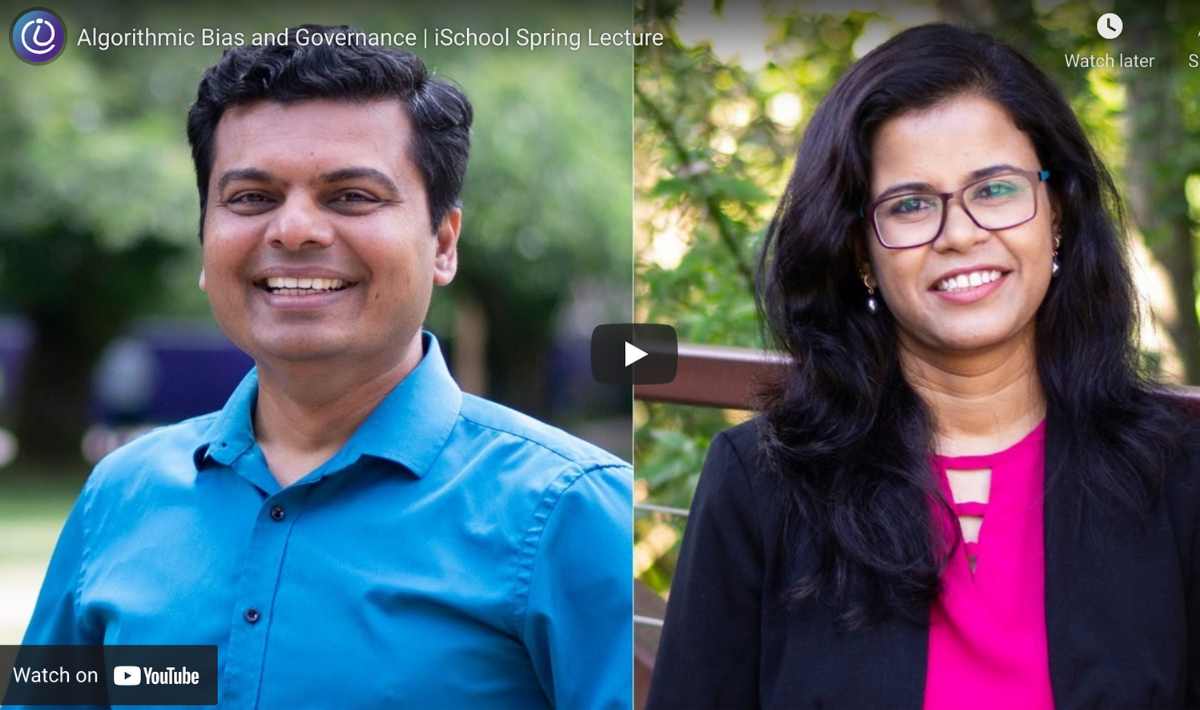
iSchool Spring Lecture: Algorithmic Bias and Governance
Today, online systems have become integral to our daily lives. Yet, these systems and the algorithms driving them surface problematic content, whether they be biased content or harmful misinformation. Left unchecked, these problems can negatively impact our democracy. Watch iSchool Professors Dr. Chirag Shah and Dr. Tanu Mitra present some of the recent works on Google search rankings to pinpoint the problem and propose a way forward.
UW iSchool Youtube Channel: Watch the full video
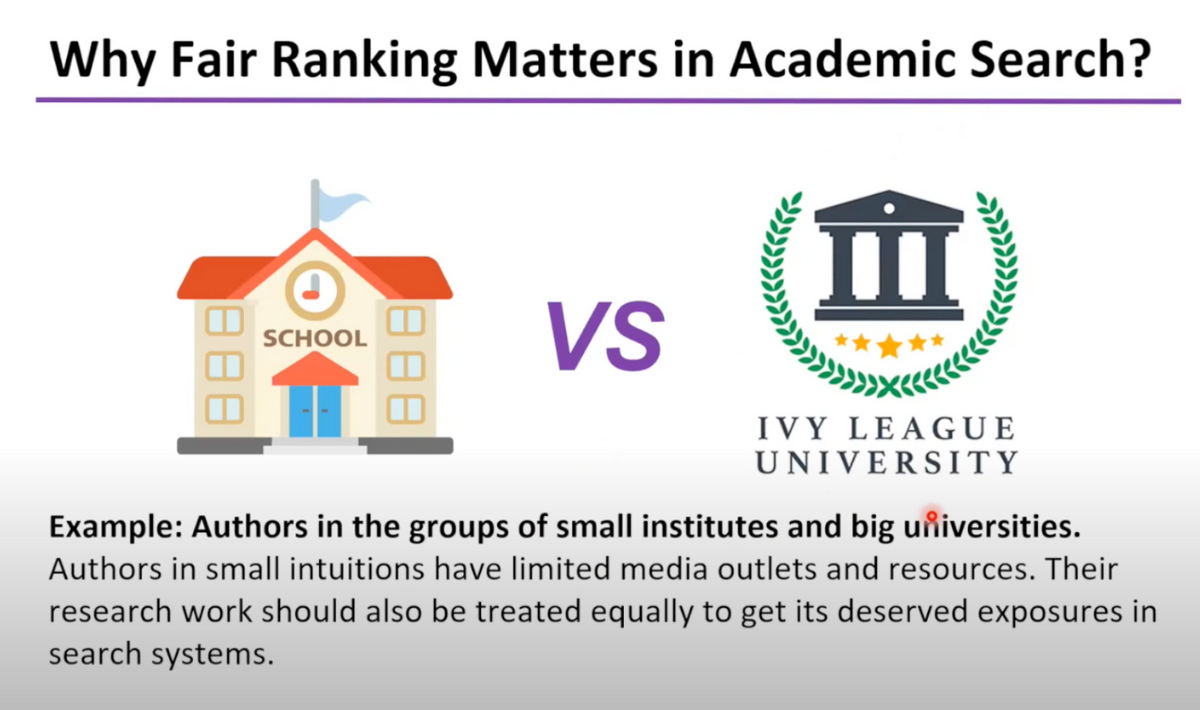
InfoSeeking Lab Members take on BIAS@ECIR2021
Towards Fairness-Aware Ranking by Defining Latent Groups Using Inferred Features
Group fairness in search and recommendation is drawing increasing attention in recent years. This paper explores how to define latent groups, which cannot be determined by self-contained features but must be inferred from external data sources, for fairness-aware ranking. In particular, taking the Semantic Scholar dataset released in TREC 2020 Fairness Ranking Track as a case study, we infer and extract multiple fairness related dimensions of author identity including gender and location to construct groups. Furthermore, we propose a fairness-aware re-ranking algorithm incorporating both weighted relevance and diversity of returned items for given queries. Our experimental results demonstrate that different combinations of relative weights assigned to relevance, gender, and location groups perform as expected.
BIAS Workshop Channel: Watch the full video
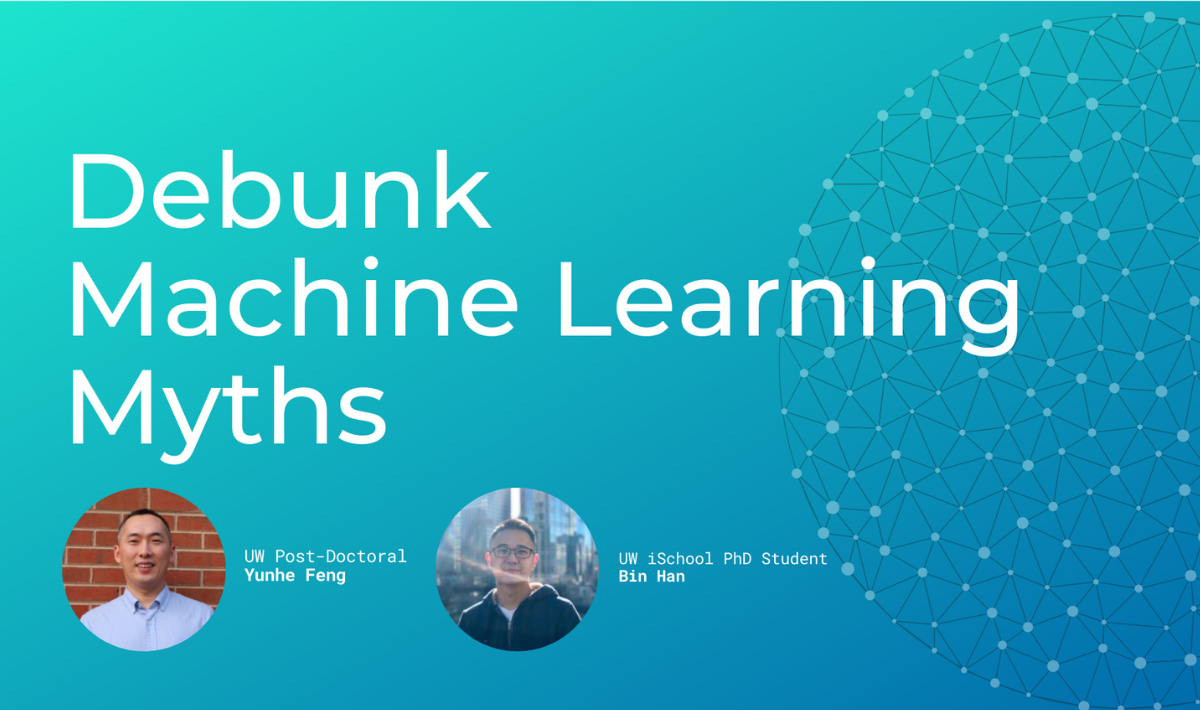
Debunk Machine Learning Myths with InfoSeeking Lab Members
Does more data mean better results? and is it true that AI will eventually replace humans? Find out what our lab members think about these machine learning myths.
InfoSeeking Channel: Watch the full video
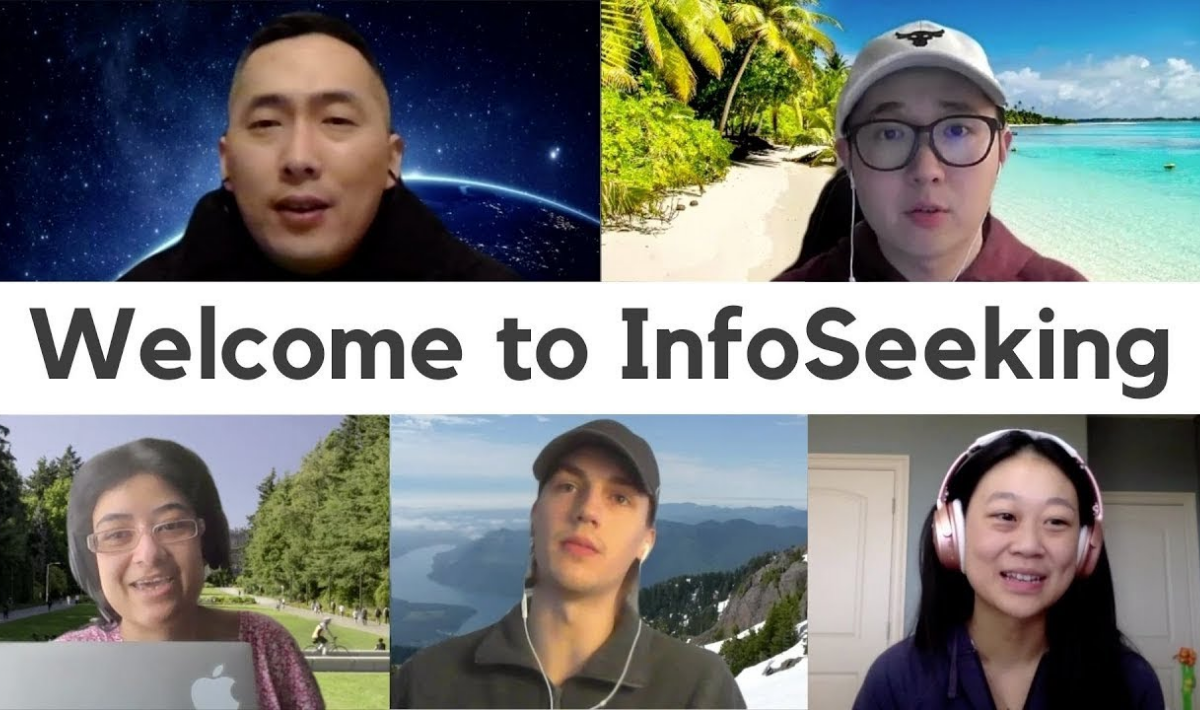
Let's get to know InfoSeeking Lab members!
InfoSeeking Lab is situated in Information School at University of Washington. The lab is directed by Dr. Chirag Shah, and includes several PhD, Masters, and undergraduate students. The funding for the lab, more than 4 million dollars so far, has come from federal agencies such as NSF, IMLS, NIH, and Smithsonian Institution, as well as private organizations such as OCLC, Amazon, Google, and Yahoo.
InfoSeeking Channel: Watch the full video

Thank you Giles for reviewing and recommending our Lab Director’s, Chirag Shah's book
One of our purposes is to make data science accessible to everyone. If anyone is interested, the book is available on Amazon
Featured on Python Programmer Channel: Watch the full video
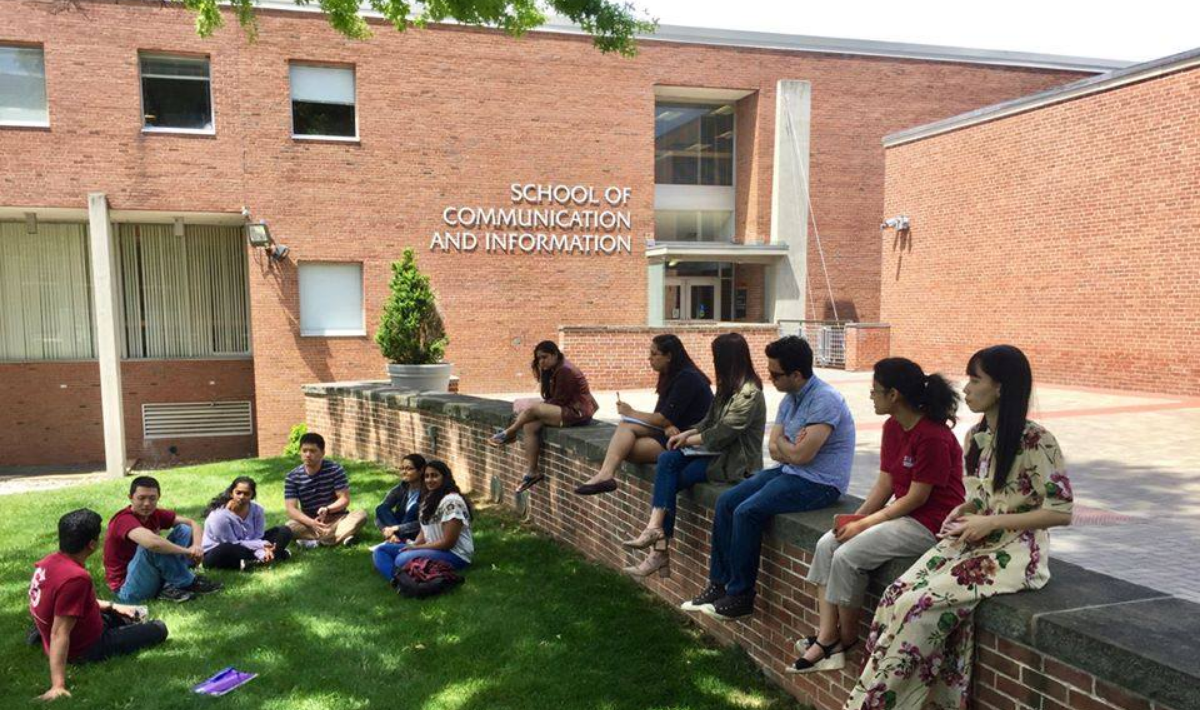
Are you interested in information research? Join infoseeking lab!
University of Washington Information School Associate Professor Chirag Shah discusses how students can get involved in his research.
Featured on UW iSchool Channel: Watch the full video
Featured in Media

No quick fix: How OpenAI's DALL·E 2 illustrated the challenges of bias in AI
OpenAI released the second version of its DALL·E image generator in April to rave reviews, but efforts to address societal biases in its output have illustrated systemic underlying problems with AI systems.
“Chirag Shah, an associate professor in the Information School at the University of Washington, said that AI bias is a common issue and that the fix OpenAI appeared to have come up with did not resolve the underlying issues of its program.
Published on: July 27, 2022
Featured in NBC News: Read full article

Fear or Anger: Why it Matters if AI Gets Emotions Right
If AI can’t read emotions, can it be trusted to do the job it is tasked to do? Some governments may not be willing to take the chance, and the European Union has already proposed rules that could restrict, and in some cases ban AI if it were a threat to the safety, livelihoods and rights of people. This could potentially be an example where AI could be a threat to safety.
“Understanding emotions or affects through textual, auditory, visual, biological, or other channels has been a topic of deep interest and investigation for decades,” explained Dr. Chirag Shah, associate professor in the Information School at the University of Washington.
Published on: May 14, 2021
Featured in Clearance Jobs: Read full article
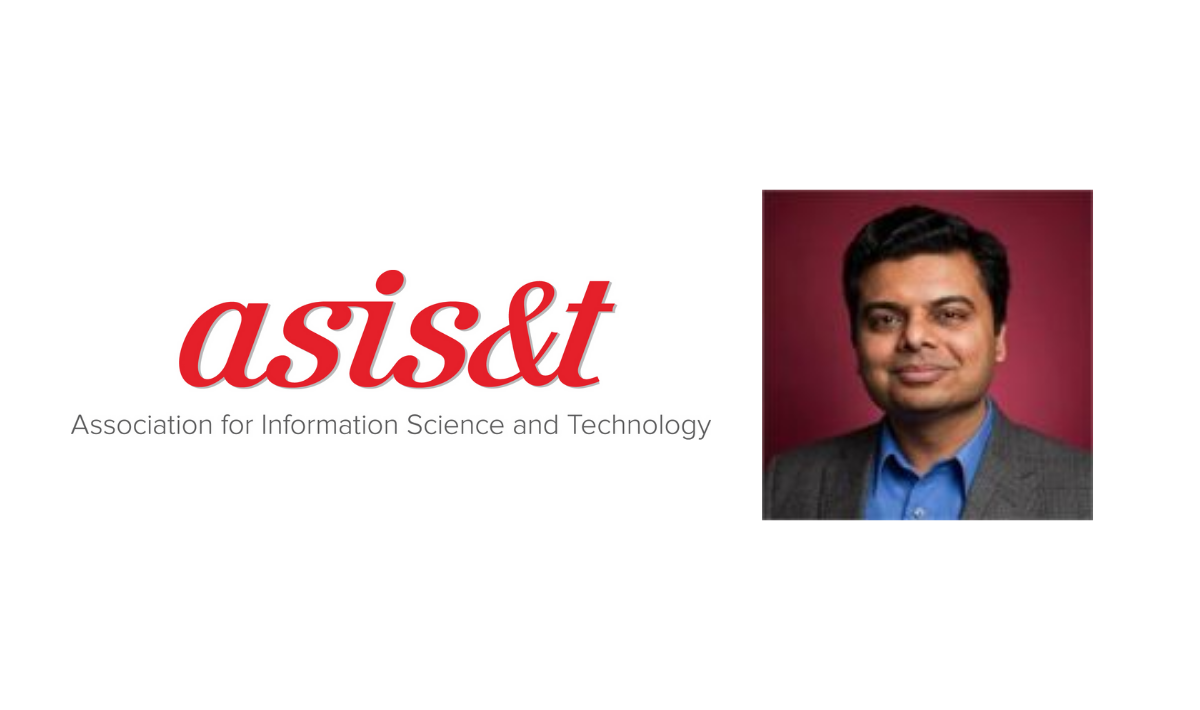
Congratulations to our lab director Dr. Chirag Shah for being nominated as the founding Editor-in-Chief of the new ASIS&T publication, Information Matters!
"According to ASIS&T President, Dr. Brian Detlor, “ASIS&T is excited to work with Chirag to shape this new publication into a go-to resource for all information science researchers and practitioners. Dr. Shah has been an integral part of the Association over the years. He shares the Association’s vision for Information Matters.”
“Information Matters is tasked with an important mission of leveraging our collective knowledge and skills in the field of information science and technology for the betterment of the society and the planet,” said Dr. Shah. He continued, “I am humbled by the ASIS&T Board’s decision and support for me to lead this visionary new platform. I look forward to working with the ASIS&T community and beyond to achieve the lofty mission for Information Matters." "
Published on: May 8, 2021
Featured in ASIS&T: Read full article

Facebook and the Power of Big Data and Greedy Algorithms
"Is Facebook evil? The answer to this simple question is not that simple. The tools that have enabled Facebook to enjoy its position are its access to massive amounts of data and its machine learning algorithms. And it is in these two areas that we need to explore if there is any wrongdoing on Facebook’s part."
Published on: April 23, 2021
Featured in inside BIGDATA: Read full article

Hospitals Hide Pricing Data From Search Results
Hospitals that have published their previously confidential prices to comply with a new federal rule have also blocked that information from web searches with special coding embedded on their websites, according to a Wall Street Journal examination.
“It’s technically there, but good luck finding it,” said Chirag Shah, an associate professor at the University of Washington who studies human interactions with computers. “It’s one thing not to optimize your site for searchability, it’s another thing to tag it so it can’t be searched. It’s a clear indication of intentionality.”Published on: March 22, 2021
Featured in The Wall Street Journal: Read full article

In the 15 years since its launch, Amazon Web Services transformed how companies do business
It enables glitch-free Netflix streaming. It hosts digital drug-design tools of the kind that led to Moderna’s COVID-19 vaccine. The Seahawks use its computing power to analyze game data. It stores a digital repository of King County’s archives. And even The Seattle Times relies on it to make sure the website doesn’t crash during surges of reader traffic.
What is it? It’s Amazon Web Services (AWS).
Cloud-computing services are “gateways,” said University of Washington Information School professor Chirag Shah. “Without them, it’s really hard to be alive as a business.”
Published on: March 13, 2021
Featured in The Seattle Times: Read full article

It’s not just a social media problem – how search engines spread misinformation
Search engines are one of society’s primary gateways to information and people, but they are also conduits for misinformation. Similar to problematic social media algorithms, search engines learn to serve you what you and others have clicked on before. Because people are drawn to the sensational, this dance between algorithms and human nature can foster the spread of misinformation.
"Ad-driven search engines, like social media platforms, are designed to reward clicking on enticing links because it helps the search companies boost their business metrics. As a researcher who studies the search and recommendation systems, I and my colleagues show that this dangerous combination of corporate profit motive and individual susceptibility makes the problem difficult to fix."
Published on: March 11, 2021
Featured in The Conversation: Read full article

Computer Information Systems vs. Computer Science, Which Path Is Right for You?
Computer science (CS) and computer information systems (CIS) represent two popular educational pathways into this industry, but many people struggle to differentiate between these two disciplines. With the help of Chirag Shah, an associate professor at the University of Washington's Information School, we break down what separates these two fields.
Shah suggests that the field best suits "those who want to deploy and support computational systems in business settings without having to learn about the fundamentals of what drives those systems."Published on: February 26, 2021
Featured in Best Colleges: Read full article
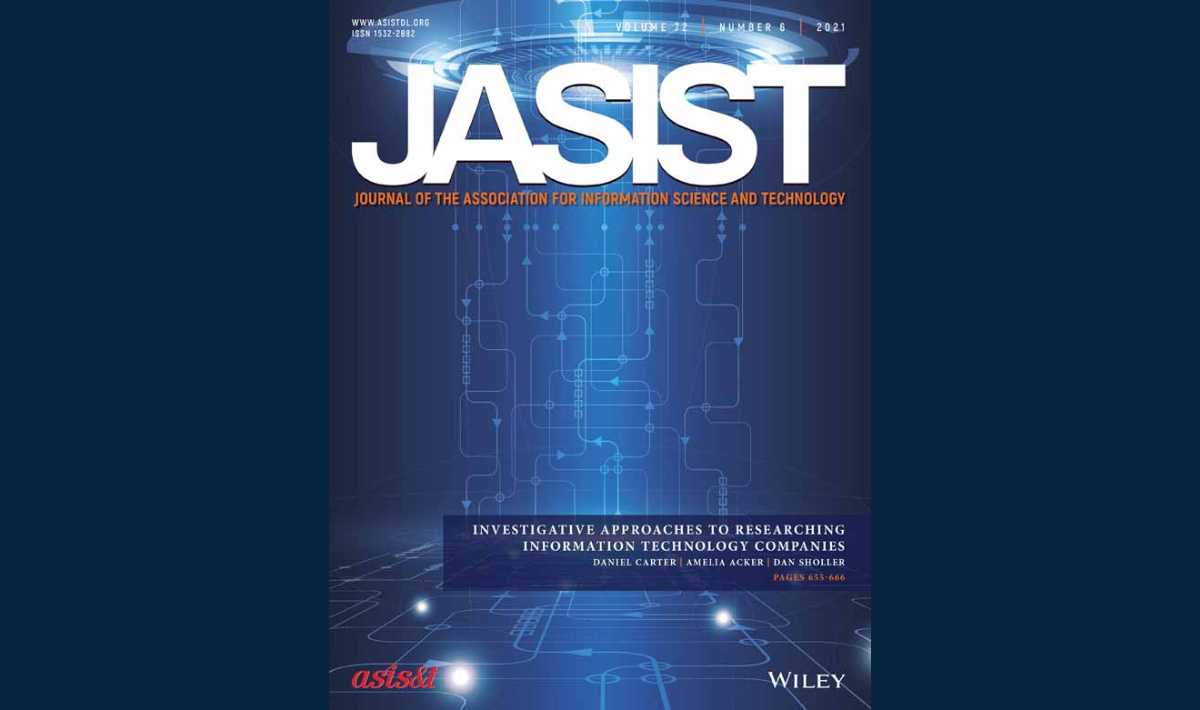
An iSchool approach to data science: Human-centered, socially responsible, and context-driven
The Information Schools, also referred to as iSchools, have a unique approach to data science with three distinct components: human-centeredness, socially responsible, and rooted in context. In this position paper, we highlight and expand on these components and show how they are integrated in various research and educational activities related to data science that are being carried out at iSchools. We argue that the iSchool way of doing data science is not only highly relevant to the current times, but also crucial in solving problems of tomorrow. Specifically, we accentuate the issues of developing insights and solutions that are not only data-driven, but also incorporate human values, including transparency, privacy, ethics, fairness, and equity. This approach to data science has meaningful implications on how we educate the students and train the next generation of scholars and policymakers. Here, we provide some of those design decisions, rooted in evidence-based research, along with our perspective on how data science is currently situated and how it should be advanced in iSchools.
Published on: 22 January 2021
Featured in JASIST: Read full article

Counteracting Bias and Increasing Fairness in Search and Recommender Systems
Search and recommender systems have unprecedented influence on how and what information people access. These gateways to information on the one hand create an easy and universal access to online information, and on the other hand create biases that have shown to cause knowledge disparity and ill-decisions for information seekers. Most of the algorithms for indexing, retrieval, ranking, and recommendation are heavily driven by the underlying data that itself is biased. In this tutorial, we will introduce the issues of biases in search and recommendation and show how we could think about and create systems that are fairer, with increasing diversity and transparency.
Specifically, the tutorial will present several fundamental concepts such as relevance, novelty, diversity, bias, and fairness using socio-technical terminologies taken from various communities, and dive deeper into metrics and frameworks that allow us to understand, extract, and materialize them. The tutorial will cover some of the most recent works in this area and show how this interdisciplinary research has opened up new challenges and opportunities for communities such as RecSys.Published on: 26 September 2020
Featured in RecSys: Read full article
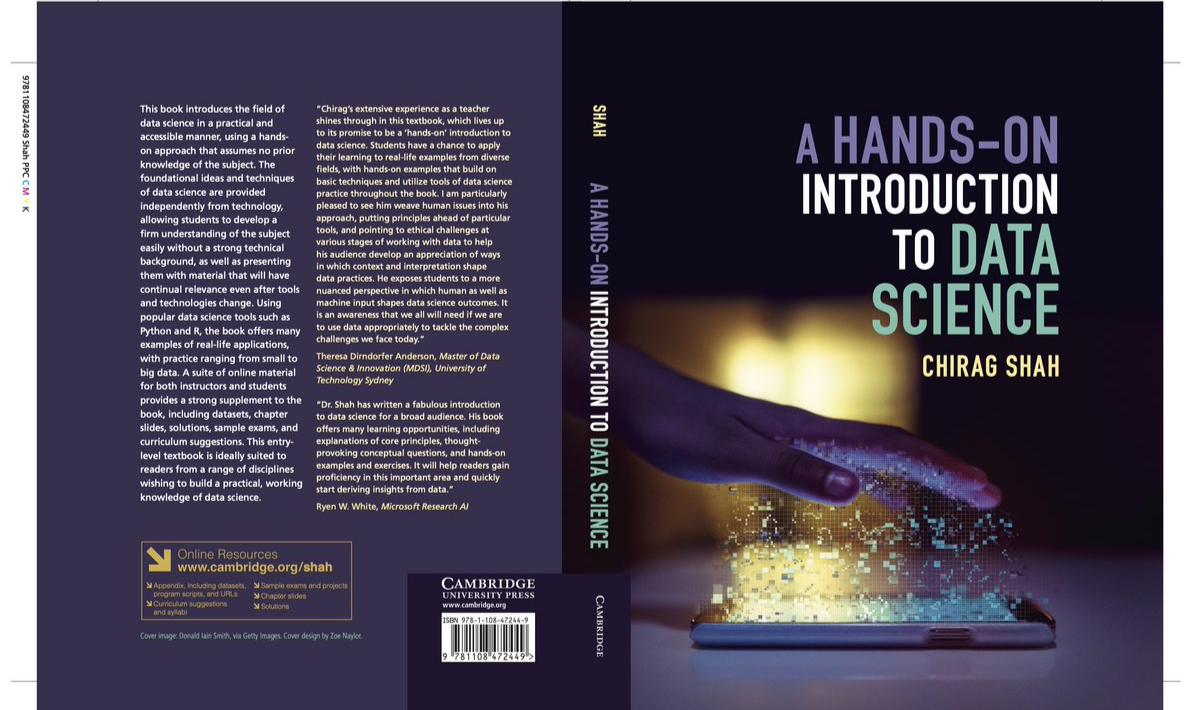
iSchool’s Chirag Shah authors 'A Hands-on Introduction to Data Science'
Chirag Shah, an associate professor at the University of Washington Information School, has authored a new academic textbook, “A Hands-on Introduction to Data Science.” Shah sees data science as an interdisciplinary field where many solutions to problems extend beyond statistical and computational modeling and require people from different fields and backgrounds to work together. “It is not just doing the programming, algorithms and data analysis, but also trying to understand data problems in context,” he said.
With the rapid growth of technology over the past decade and its impact on our daily lives, Shah argues that data literacy is important for everyone to learn. When he could not find enough material to teach in his classes that made data science accessible to students, he decided to write this textbook.Published on:July 14, 2020
Featured in iSchool: Read full article

What’s behind your search engine? Chirag Shah works to bring transparency to search engine recommender systems
This is not an entirely new question. As our phones have gotten smarter and assistive technology has infiltrated almost all aspects of daily lives, people have begun to question how these technologies seem to know us so well. Chirag Shah, an associate professor at the UW and founder of the InfoSeeking Lab, is looking at just that. With a grant from the National Science Foundation (NSF), Shah is looking into how companies like Google can improve the transparency of their search engines.
Shah wants to change this. He wants to find transparency that makes users aware of how their search results are being produced without going into so much detail that the information becomes overwhelming.
Published on: Mar 6, 2020
Featured in The Daily UW: Read full article